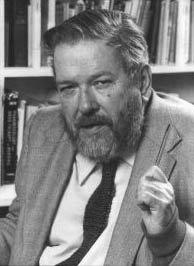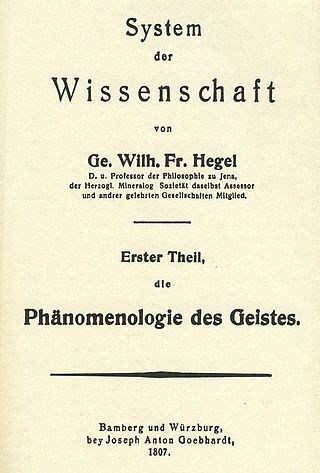James Alexander Doull (1918–2001) was a Canadian philosopher and academic who was born and lived most of his life in Nova Scotia. His father was the politician, jurist, and historian John Doull.
From the late 1940s until the mid-1980s, he taught in the Department of Classics at Dalhousie University in Halifax. [1] He was himself educated at Dalhousie as well as at the University of Toronto, Harvard University, and the University of Oxford, where he was a Rhodes Scholar.
In 2003, the University of Toronto Press published a substantial volume containing a number of his works together with commentary provided by former colleagues and students. [2] [3] [4] [5] The appearance of this compilation, which also contains biographical details upon which this article is largely based, is perhaps among the reasons that Doull is now rather better known than he was at any point during his life. It contains writings on Greek poetry; the culture of ancient Rome; ancient, medieval, and modern philosophy; and twentieth-century politics; and certain key figures (such as Plato, Augustine, and Hegel) receive particular attention. In general the collection reflects Doull's deep conviction that the western philosophical tradition as a whole remains of great relevance and also his special interest in Hegel, with whose philosophical position Doull was in close agreement. Indeed, his Hegelian views (especially his judgement that Hegel had been successful in his attempt to articulate in the form of self-developing concepts the inner content of the Christian revelation) were no doubt a major reason that he was regarded as outside the philosophical mainstream.
He studied with Werner Jaeger at Harvard, and during the course of his life met a number of important figures (Gilson for example) in twentieth-century philosophy; but he did not in general show much sign of having been formed philosophically by those he met, or indeed by anyone after Hegel. The Canadian philosopher Charles Norris Cochrane, with whom he studied in Toronto, is perhaps the only notable exception to this.
He greatly admired the playing of the Canadian pianist Glenn Gould, with whom he shared, in addition to an extraordinary independence of mind, a vision of Canadian spiritual life (which for Doull encompassed such spheres as politics, art, religion, and philosophy) that combined both a receptivity to the possibilities of the new world and a strong sense of continuity with the European past. Hans-Georg Gadamer expressed surprise at having encountered a person of such comprehensive erudition in North America. Emil Fackenheim called him the only Hegelian. [4] His colleague and friend George Grant [6] said of him: 'Of all the Canadians of my generation, he certainly has the clearest intellect of any I have known. Nothing I would ever have to say about philosophy will compare to his knowledge of it'. [7]
Many of his published articles can be found in the journal Dionysius, of which he was one of the founding Editors [8] and in connection with which he was (together with his fellow Editors A. H. Armstrong and R. D. Crouse) remarkably successful in recruiting as Editorial Advisors many distinguished scholars, among whom were Werner Beierwaltes, Henry Chadwick, Mary T. Clark, Emil Fackenheim, Eugene Fairweather, J. N. Findlay, Hans-Georg Gadamer, George Grant, Malcolm Ross, Wilfred Cantwell Smith, and George Williams. He also published a number of essays in the electronic journal Animus, the tenth Volume of which was devoted to essays on his life and thought. [9]
In 1989, he was admitted honoris causa to the degree of Doctor Civilis Legis (DCL) of the University of King's College in Halifax. [10]
His papers have been deposited in the James Alexander Doull Archive at the Grenfell Campus of the Memorial University of Newfoundland.
Dialectic, also known as the dialectical method, refers originally to dialogue between people holding different points of view about a subject but wishing to arrive at the truth through reasoned argumentation. Dialectic resembles debate, but the concept excludes subjective elements such as emotional appeal and rhetoric. It has its origins in ancient philosophy and continued to be developed in the Middle Ages.

George Parkin Grant was a Canadian philosopher, university professor and social critic. He is known for his Canadian nationalism, a political conservatism that affirms the values of community, equality and justice and his critical, philosophical analysis of the social and political effects of limitless technological progress. As a practising Christian, Grant conceived of time as the moving image of an eternal order illuminated by love.

The Phenomenology of Spirit is the most widely discussed philosophical work of Georg Wilhelm Friedrich Hegel; its German title can be translated as either The Phenomenology of Spirit or The Phenomenology of Mind. Hegel described the work, published in 1807, as an "exposition of the coming to be of knowledge". This is explicated through a necessary self-origination and dissolution of "the various shapes of spirit as stations on the way through which spirit becomes pure knowledge".

Alexandre Kojève was a Russian-born French philosopher and statesman whose philosophical seminars had an immense influence on 20th-century French philosophy, particularly via his integration of Hegelian concepts into twentieth-century continental philosophy.

Count August Dołęga Cieszkowski was a Polish philosopher, economist and social and political activist. His Hegelian philosophy influenced the young Karl Marx and action theorists.

Emil Ludwig Fackenheim was a Jewish philosopher and Reform rabbi.
Colin John Starnes is a professor, author, and former President of the University of King's College in Halifax, Nova Scotia, Canada.
Arthur Hilary Armstrong, was an English educator and author. Armstrong is recognized as one of the foremost authorities on the philosophical teachings of Plotinus. His multi-volume translation of the philosopher's teachings is regarded as an essential tool of classical studies.
The Dalhousie Review is a Canadian literary magazine, founded in 1921 and associated with Dalhousie University. It publishes three times a year, in the spring, summer, and fall. Content includes fiction, poetry, literary essays and book reviews.

John Niemeyer Findlay, usually cited as J. N. Findlay, was a South African philosopher.
John Norbert Deck was a Canadian philosopher. Adhering to neither sartorial nor intellectual fashions, Deck inspired generations of students with his highly idiosyncratic form of idealism, deriving from Plotinus but equally rooted in Thomas Aquinas and Hegel.
Catherine Malabou is a French philosopher. She is a professor at the Centre for Research in Modern European Philosophy (CRMEP) at Kingston University, at the European Graduate School, and in the department of Comparative Literature at the University of California, Irvine, a position formerly held by Jacques Derrida.
The study and teaching of philosophy in Canada date from the time of New France. Generally, Canadian philosophers have not developed unique forms of philosophical thought; rather, Canadian philosophers have reflected particular views of established European and later American schools of philosophical thought, be it Thomism, Objective Idealism, or Scottish Common Sense Realism. Since the mid-twentieth century the depth and scope of philosophical activity in Canada has increased dramatically. This article focuses on the evolution of epistemology, logic, the philosophy of mind, metaphysics, ethics and metaethics, and continental philosophy in Canada.
Douglas Moggach is a professor at the University of Ottawa and life member of Clare Hall, Cambridge. He is Honorary Professor of Philosophy at the University of Sydney, and has held visiting appointments at Sidney Sussex College and King's College, Cambridge, the Centre for History and Economics, Cambridge, Queen Mary University of London, the Scuola Normale Superiore di Pisa., and the Fondazione San Carlo di Modena, where he taught a graduate seminar in Italian on German Idealism. He lectured on Marx and German Idealism as Visiting Professor at Beijing Normal University in 2013 and 2015. Moggach has also held the University Research Chair in Political Thought at the University of Ottawa. In 2007, he won the Killam Research Fellowship awarded by the Canada Council for the Arts. He was named Distinguished University Professor at University of Ottawa in 2011.
Charles Norris Cochrane was a Canadian historian and philosopher who taught at the University of Toronto. He is known for his writings about the interaction between ancient Rome and emerging Christianity.

John McTaggart Ellis McTaggart was an English idealist metaphysician. For most of his life McTaggart was a fellow and lecturer in philosophy at Trinity College, Cambridge. He was an exponent of the philosophy of Georg Wilhelm Friedrich Hegel and among the most notable of the British idealists. McTaggart is known for "The Unreality of Time" (1908), in which he argues that time is unreal. The work has been widely discussed through the 20th century and into the 21st.
Mary Twibill Clark was an American Roman Catholic nun, academic, and civil rights advocate. She was best known as a scholar of the history of philosophy, and was associated especially with Saint Augustine.
Animus is an electronic academic journal of philosophy and the humanities based at the Grenfell Campus, Memorial University of Newfoundland. It was established in 1996 and appears annually. The current editors are Ken Jacobsen, David Peddle, Neil Robertson, Kenneth Kierans, and Eli Diamond. Animus is abstracted and indexed in the Philosopher's Index.
Canadian idealism is a Canadian philosophical tradition that stemmed from British idealism.
Robert Darwin Crouse was a Canadian religious philosopher and Anglican priest.